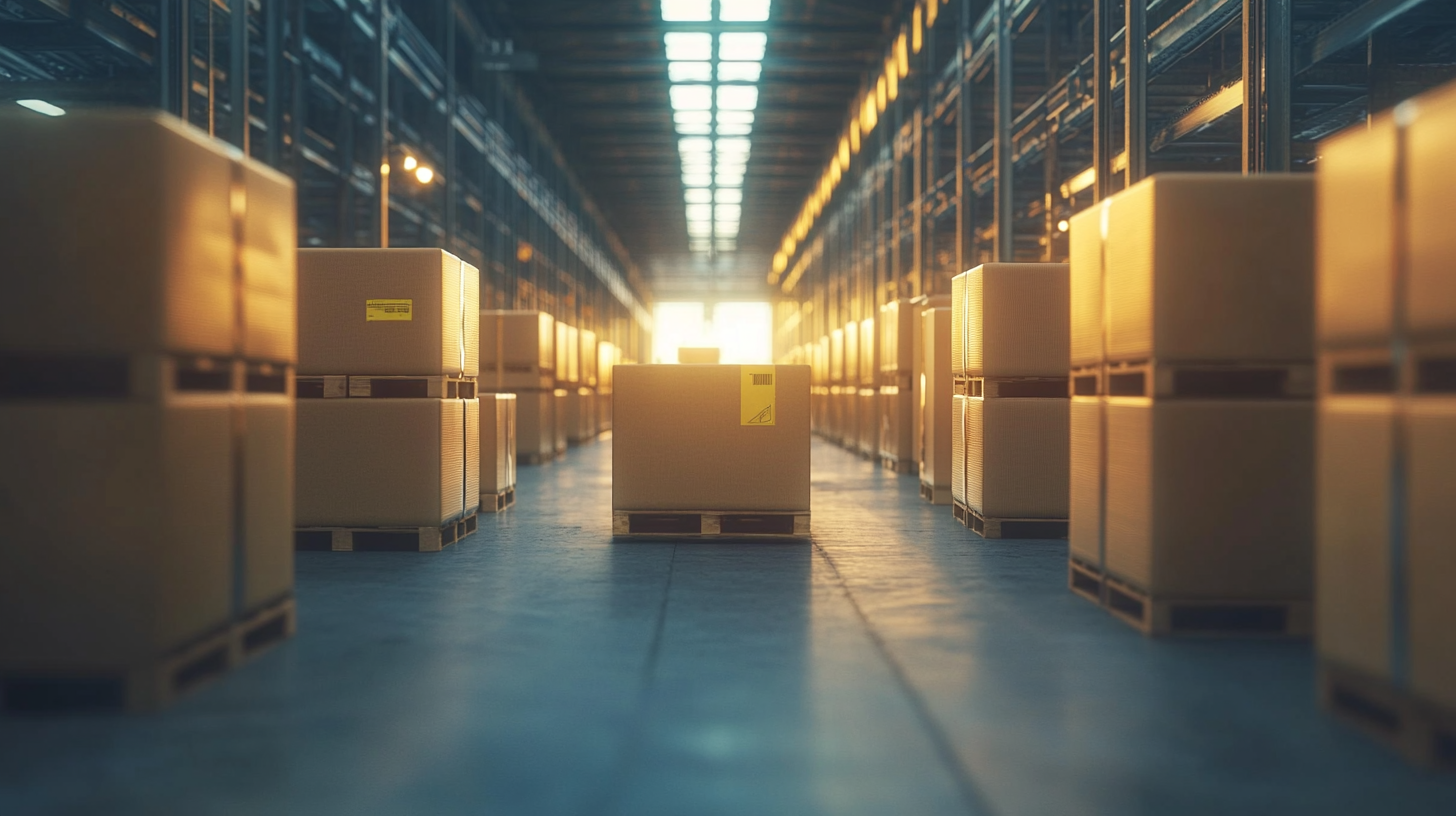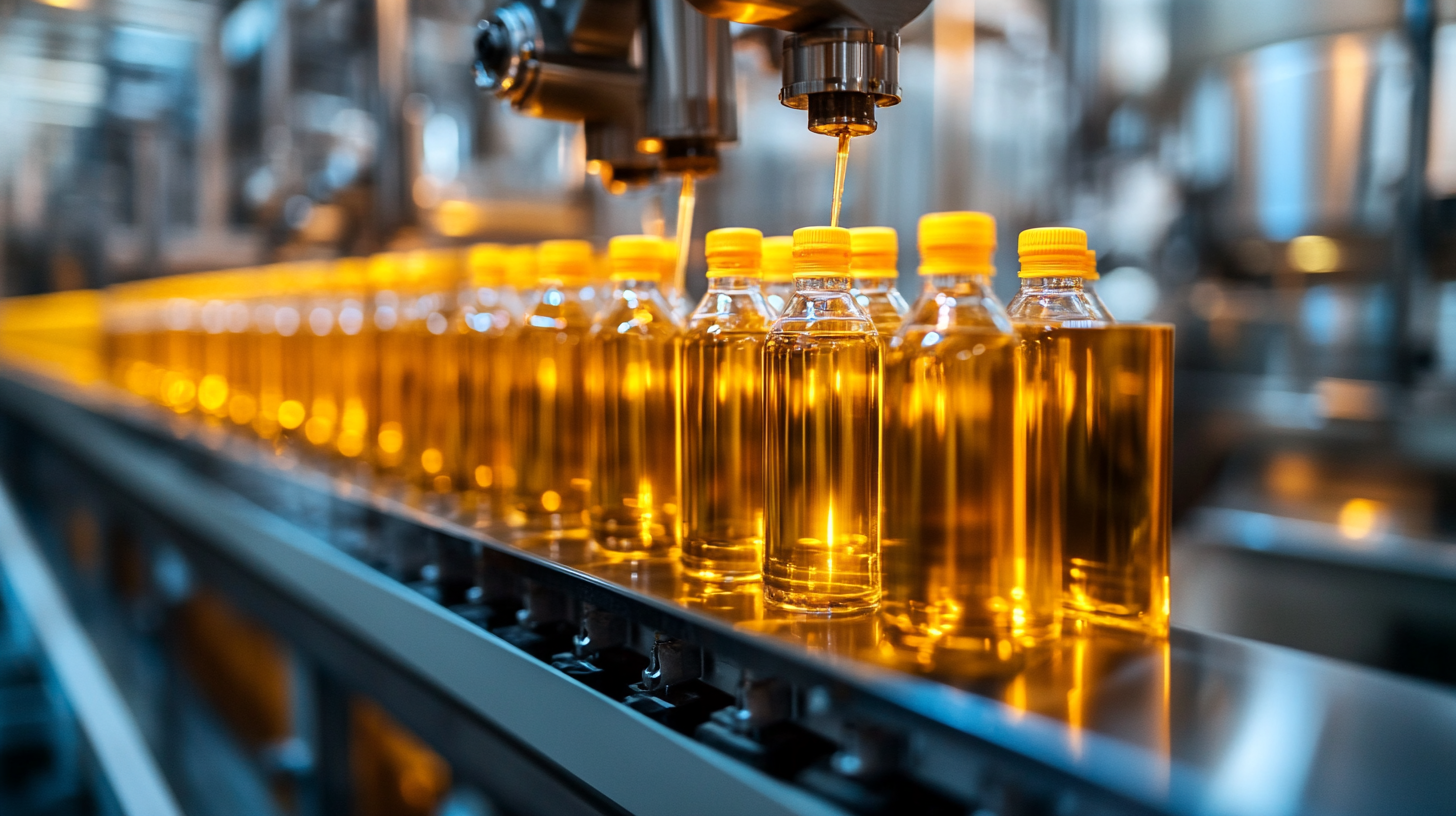Revolutionizing Efficiency in Production with Advanced Packaging Machines
In the developing face of industry, packaging work-areas come to a crucial point in increasing operational efficiency. According to Smithers Pira, the global packaging machinery market is estimated to reach close to $53 billion by 2024, registering a CAGR of almost 5.1% from 2019 onwards till the category is realized. Growth has come as the need continues for a packaging machine that is both adaptable and reliable enough to meet the various challenges in today's manufacturing environments. As companies continue their effort to streamline manufacturing processes and reduce wastage, the integration of advanced packaging machines is considered to be transformative in this setting.
According to a piece of research by PMMI (Packaging Machinery Manufacturers Institute), over 60% of manufacturers across international borders consider that packaging automation would be the number one instrument for improving efficiency. Robotics, AI, and IoT have come into the mix to provide solutions to issues like labor costs and aid in optimizing the production present in-packaging operation technology. Backed further are the massive benefits of new technologies: intercommunication and real-time data maturation make it all the more apparent how packaging tools are merely more than mere tools and there is utmost necessity to modernize operations and bring about growth and sustainability to the sector.

The Role of Advanced Packaging Machines in Streamlining Production Processes
In emerging trends of manufacturing, state-of-the-art equipment plays a big role in fast-tracking production processes. Smart technologies combined with automation in advanced packaging machines would increase its efficiency through the minimization of manual duties and cut down the time length of doing package operations. Thus, resources can be allocated even better as intended for core production while packaging with exactness and in a proper manner. Essentially, a great deal of waste in production is taken out or greatly reduced with high-tech packaging solutions. They optimize their packing sizes and materials because of costs and efficiency in sustainability. Those monitoring systems that live through time with machines provide critical information about the things that would guide actors. This would allow them to be agile enough to meet the market dynamics and thus create competitive advantages both in timelines of production and ultimately in product quality and thus leading to higher customer satisfaction as the end result. Thus, in summary, automation is taking packaging to another level, a level characterized by not just the unity of functions but a novel on. This allows advanced packaging machines to ensure maximum variety across very different forms of packaging formats now being marketed toward different products. This gives the company the opportunity to branch out in many faces while being flexible enough to turn wherever market sentiments trend! With the continuing pace of technology advancements, the future of efficiency in production will depend on the capabilities of these machines to adapt and be flexible enough to evolve as per industry needs, thus heralding a bright new era in manufacturing excellence.

Key Benefits of Implementing Modern Packaging Solutions in Manufacturing
Modern packaging technologies have thus improved operational efficiencies in manufacturing and resulted in considerable savings and better product integrity. Smithers Pira mentions that the global packaging machinery market is expected to achieve around $50 billion by 2026, spurred on by advances in technology and automation. Companies that implement innovative packaging machines can achieve up to a 20% improvement in production speeds and are therefore able to adapt and satisfy rising consumer demand.
Another advantage of modern packaging innovation is that it prevents needless use of materials. The study states that manufacturers employing smart packaging technology can reduce wastage due to 30%. This helps sustainability while also cutting back on material costs, enabling manufacturers to pour capital into other vital areas of production.
Additionally, better automation of packaging processes has reduced errors from human judgment. According to the International Society of Automation, packaging lines are able to reduce errors in packaging by as much as 99%. Such precision has bettered product quality and consumer trust and satisfaction, and in turn, has increased brand loyalty in a competitive marketplace.
Modernization in packaging technology is, therefore, not a fad but a must-have evolution for improved efficacy, reduced cost, and customer experience. Adopting modern technology is, therefore, critical for manufacturers who want to prosper in today's volatile environment.

Innovative Technologies Driving the Future of Packaging Machinery
A novel pace is set ON by innovative technologies that jolt all the boundaries of defining efficiency and productivity; further, the new report by Research and Markets says that globally the packaging machinery market will be around USD 50 billion by 2025 at a CAGR of up to 5.2% from 2020. The increasing growth has been attributed to advancements like automation, robotics along an IoT integration that allowed their manufacturers to pretty easily improve operational performance and minimize production time by several hours, among others.
It is from automation that the revolution has emerged, allowing a packaging machine to be the one factor mostly controlled with the least hand intervention. From an edited article published by Smithers Pira, automated packaging can cut labor costs by 30%. Smart packaging machines are beneficial to enhance control checks for product safety or quality while minimization of waste. These machines would relay data in real-time to improve responsiveness from the manufacturer to the supply chain in accordance with market needs.
There is also increased focus on green packaging technology. The increased consumer demand for products that are green has now impelled the packaging machinery industry; biocompatible and recyclable materials are fast occupying the priorities. According to the Grand View Research report, the sustainable packaging market will reach USD 400 billion by 2027; machines entering the business will be enlisted under top priorities to efficient processing of these materials. The future seems to promise a more efficient, sustainable, and tech-enabled world for all production as organizations invest in brilliant packaging techniques.

Case Studies: Successful Adoption of Advanced Packaging in Various Industries
Technology has advanced pakaging with very different production efficiencies across the many industries involved today. Recent case studies show that companies are increasingly using advanced packaging as a strategy to improve their operations and brand integrity. Various businesses, for instance, have had their fair share of tussles regarding inappropriate use of packaging due to the importance placed on legal, ethical and regulatory challenges associated with authenticity and compliance. Companies found guilty of the wrongful competition by unauthorised use of a name of an eminent personality on their product packaging, for example, made this case known where packaging plays a very important role in defining a brand.
Innovative Packaging has simplified the manufacture and made stronger competition in the market. Companies have been able to operate under their own packaging production facilities while benefiting with costs saved, what was not possible in the old conventional circumstances. Investments in high-tech packaging machines enable the reduction of waste and enhancement of beauty of products. This efficiency gain contributes to cost savings and even customer convenience. Besides, smart technologies in packaging provide tracking, monitoring, and quality control throughout the supply chain.
A consideration for the socio-legal implications of the latest technological developments in packaging solutions would show that industries and companies had changed hardly in the way they consider consumer perception. The differentiation that comes with advanced packaging could bring to life how engaging and more lasting an experience could be for users. As we follow the success of these practices, we understand that production efficiency in the future will very highly depend on how well products are packaged and presented to the world.
Overcoming Challenges in Production with Smart Packaging Equipment
As today's competitive manufacturing environment continues to evolve, overcoming production issues is essential to remain competitive. Of late, smart packaging equipment has emerged as a godsend for industries sustaining seasonal market fluctuations. One significant example is in the case of Lenovo, which has implemented flexible production lines in its Southern Smart Manufacturing Base, thus allowing quick responses to what are now becoming small-batch orders. Flexibility matters in responding effectively to seemingly unpredictable global PC market demands, where order sizes and frequencies tend to sharpen and fluctuate unpredictably.
Recent reports from the industry indicate that since advanced packaging machines save time, costs, and material, incorporating them into operations would lead to a production efficiency increase from 20% to 40%. Besides increasing throughput, these smart devices have also reduced waste, further slashing operational costs. Interestingly, the more individualized the demand, the easier it is to develop advanced packaging solutions that hasten manufacturing while still ensuring quality in the shorter time frame.
Agility, now more than at any time in the past, is a necessity as the entire world becomes interconnected. Smart packaging technology utilizes real-time data analysis and quick response adaptation to improve resilience against market volatility. In this case, manufacturers are putting themselves in a position not only to survive but also to thrive under the vicissitudes and demands of modern production.